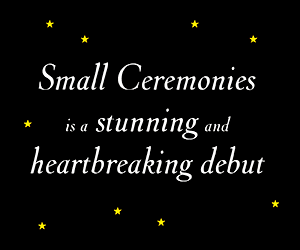The election is over. The final chapters of Dogfight have been turned in. And Calvin Trillin’s power is back on. It was out for the four or five days following Hurricane Sandy, during which time he came to think of the offices of The New Yorker as “a gigantic electrical outlet.”
For the last installment of our chats, I feel comfortable enough to bait him a little at the outset. Aware of his preference for New York bagels, 11Preference? Chauvinism, perhaps. Trillin once wrote, “Anybody who doesn’t think the best hamburger in the world is in his hometown is a sissy.” (American Fried) I mention that I just finished one I shuttled home to Toronto the day before from St. Viateur in Montreal. “It’s a good dessert bagel, I think.” If the election had gone into a lengthy, 2000-style recount, we might have had another installment to debate whether Toronto’s dim sum palaces serve better sticky rice than New York’s, 22See above. but the electoral college has spoken. Dogfight will be on shelves “in the last remaining superpower, at least,” Trillin reminds me, on November 20th. So we begin picking over the bones of the campaign’s stretch run.
My first question is this: Since we’ve been joking about predictions all along, will you now predict the winner of the 2012 presidential election?
I think Obama will take it.
Is that a 100% certainty?
Well, you can never get 100%. Well, I did a piece for The Globe and Mail for the weekend edition and I said the Obama people, as they used to say in American politics, can count. They found the voters that would probably correspond to their needs and they figured out how to expand them and how to get them to the polls and the others guys just talked and talked. 33Allow me to be the millionth person to recommend Sasha Issenberg’s The Victory Lab for more on this approach to winning elections.
So I think there will be a lot of soul-searching in the—it’s already going on—among the Republicans. How that will come out I don’t know. I think it was Alec Baldwin who said, “If you’re in a party where you say, ‘The rape guy lost,’ and then somebody says, ‘Which rape guy?’ you’re in real trouble.” If there are two people talking about rape and you’re trying to run a campaign... So I think there’s a lot of pressure. I think Romney at the end tried to move to the centre but it was too late.
I have to assume that you’re pleased with the outcome...
I don’t know if I told you before, but when I was the emcee at The Nation Institute dinner—The Nation Institute is sort of allied with the Nation Magazine, which I have described in one word: pinko—a few weeks after George Bush won a second term, I said, “If I seem a little more cheerful than other people here tonight it’s because I already have a house in Canada.” I didn’t hear as many people say they were leaving if Romney won as I did when Bush won, although I don’t think many people, if any, left when Bush won.
But, yeah, I was pleased. I think I would’ve just had trouble watching Romney for four years. And I think that had some effect on the election. I mean, the American President is so omnipresent. It’s not like being a Prime Minister or something because you’re head of state as well as head of government so you’re just there all the time. And I think there’s some effect on the vote of who you really want to have in your living room for the next four years.
Although I said in one of the poems in the book that even though the person who’s considered more likeable usually wins, it’s not a foolproof system. Dick Nixon won twice. He was not terribly likeable and also not the person you wanted in your living room. But I do think that had an effect.
Are you as pleased poetically with the outcome?
Poetically? Well, I mean, in a way, no. I had Mitt, which is a good, solid one-syllable rhyme, which is now useless pretty much. It’s of no value to me at all. With Obama, I may have mentioned before, I used most of the rhymes up with Osama and not many of those are left. So I don’t know. Poetically, I think I might have taken a hit for the country, maybe.
But with term limits at least his name won’t be around next time.
No, all I have to do is wait for four years for some nice, iambic candidate to come along. I’m not sure who that would be.
Hillary is not one of them.
Well, Hillary is just terrible. I don’t mean personally, but Bill Clinton I’ve always described as “the ‘orange’ of American presidents” because the rhyme is not only bad but the meter is bad. And during what I usually refer to as “the unpleasantness” during the second term of Clinton’s presidency, when Hillary took the lead and went on the Today show and went on the defense I did a poem which I had to use her former name because ‘Clinton’ was so bad. So I said:
And so it’s up to our Ms. Rodham
To prove Bill’s White House isn’t Sodom.
It’s up to this adroit Señora
To show that it is just Gomorrah.
I gave a talk once at some dinner where she was being honoured, a dinner party, and I said that it wasn’t a moment to criticize her by any means, but I really did think that her name was insufficiently iambic. And she came up to me afterward and said, “Well, I’ve been criticized before but this one really cut.”
And there’s nothing she could do about it.
There’s nothing she could do. She could go back to “Rodham” but how many times can you rhyme ‘Rodham’ with ‘Sodom’?
I’ve heard people saying Hillary Clinton and Cory Booker in 2016, which scans better.
Yeah, he’s not bad. [Trillin quickly scans the meter of Booker’s name.] I would find him acceptable.
After the election, I’ve read it’s the turning point for liberalism with all of the ballot initiatives passing, or in The Globe and Mail on the weekend they said that it’s the end of the Reagan legacy. I was reminded of when we talked the first time, you’d said all these same kind of predictions came out after the last election as well. Saying the Republicans would never be able to do anything in 2010...
I’ve heard this at least twice before. One after Lyndon Johnson’s landslide victory over Goldwater, when they said the Republicans were done. And then in 2008, when they said the Republicans were done. So, you know, you have to take these things with a grain of salt.
I do think they have a problem. They didn’t exactly sell their soul to the devil; they sold their soul to Jesus. So they have the problem of having exploited these Evangelicals for their vote to protect their tax breaks and the people who actually run the Republican party, who, I’m afraid, are no more devout than the Democrats. They’ve exploited the Evangelicals all these years and now the tail, if not wagging the dog is at least making the dog limp.
The country’s changed. I mean, the gay marriage issue is the best example. I say in the book, actually, and I think the rhyme here is ‘verily’ that “It will be settled actuarily.” If you look at the gay marriage polls, of the approval and non-approval of same-sex marriage, it all has to do with how old you are. The opposition all comes from older people. In order to win the Republican nomination you have to get so far to the right on those issues. And the country doesn’t believe that any more. It’s astonishing how fast that changed. If ten or fifteen years ago someone had said to me, “The President will say he’s OK with gay marriage and also most Americans will say they’re OK with gay marriage,” I would have said you were crazy. I mean, I was OK with it, but I think the rest of them weren’t.
So it’s changed fast but the Republicans are stuck with these people. These people haven’t changed at all. And as many people pointed out, they live in a sort of bubble. They live in a bubble of FOX news and talk radio. Right-wing books become instant best sellers. And I think that’s because they confirm what the devout believe. So they’re in, as either the president of General Motors or Chrysler said, a parallel universe.
So the Republicans do have a problem in that demographically they’re dependent on a shrinking percentage of the electorate. So I think one would think that they have to do something.
But on the other hand, I can show you quotes from these guys who pontificate on television who said the chances for the Republicans to win the Congress in 2010 were zero. Not unlikely, but zero. Well, they won easily. And they won this time too in the House of Representatives so, you know, all of these predictions that they’re going to be like the Whigs or something or some party that disappeared in the nineteenth century, you have to take them with a grain of salt.
That’s what I was thinking: the Republicans are still in control of the House, they’re still saying they’re not going to raise taxes...
Right. But people like Boehner and the traditional Republicans are of questionable control over these people, the Tea Party people and the religious... I mean, can you imagine in 2012, having as a campaign issue contraception? Americans assumed that at the very latest that was settled in the ‘60s with a Supreme Court decision called “Griswold v Connecticut.” And to argue about that at this point? You can’t win elections that way.
That was the thing that I found interesting post-Election Day that there was this trope of, “It’s a country that’s sharply divided.”
Well it is divided... you can look at the popular vote, although... The networks and the press just kind of obsessed with the popular vote all through the campaign and as you know it means nothing.
That’s what I meant: I thought that it was interesting that they choose this metric that is meaningless—
It’s totally meaningless and they were doing it, but Axelrod and Plouffe and those guys were not looking at the popular vote. They were not even looking at other states, other than the battleground states.
And there is a sharp divide, but I think the people who are worried about the Republican party, which includes mostly Republicans, worry that the half - it is roughly half - of the people that voted for Romney are older and demographically in a group that is getting to be a smaller percentage of the electorate. So when they look to the future, that’s what causes all this problem, obviously... this discussion of “Are the Republicans done for?”
And if the popular vote actually meant anything, would it still be 50-50? Does that statistic even matter. If the popular vote decided the election you would strategize differently.
Oh yeah, there would be a totally different campaign if the popular vote actually decided. But as it stands now, I heard people say that this campaign actually comes down not just to half a dozen states but ten or fifteen counties. One of the poems in the book is, “Why Oh Why Oh Why-o Did I Ever Leave Ohio?” because your vote doesn’t count any more once you leave Ohio. It’s all Ohio.
I think that one of the things the popular vote does now is if you lose the popular vote, although this didn’t seem to bother George W. Bush, or cast any doubts on the legitimacy of his presidency, I think one of the things if you lose the popular vote and win the electoral vote, I think it gives you sort of less of an obvious mandate to follow the policies that you talked about in the campaign. If indeed you’ve talked about any policies in the campaign.
And I think if Obama had lost the popular vote, it would be yet another subject that they would talk about in an attempt to delegitimize him, all of which as far as I’m concerned go back to race. And I mean I think all this stuff about where he was born and whether he’s a Muslim and all of this stuff is just like if you keep filling a sausage and there’s no place for it to go, it just gets torn at the middle instead of at the top and stuff just bursts out, but it’s all race. And it would give those people another reason - not that they need another reason, I mean something like thirty percent or more of people who vote Republican think he’s a Muslim.
They gave people any number of reasons not to vote for Obama.
I’m writing a poem this week that says when the Republicans do all their soul searching, what some of them will decide is that they didn’t prevent enough people from voting. I mean, that seems to be their basic strategy. It’s not to expand their vote but to find the people who might vote against them and then find ways to keep them from voting. That seems to me not a winning strategy either.
And I have to say that I find it really profoundly offensive. I mean, the idea that we’re all taught in grade school that there’s something sacred about the vote and that every citizen has an obligation to vote and then to have as part of your strategy to prevent the vote, I think it would be fair to call it anti-American.
And like so many things we’ve seen, the voter ID laws gin up a seemingly real—or real-feeling—reason to do something.
I mean, all of the statistics show that this is a total smokescreen, the business about voting fraud and all that. And the guy in Pennsylvania sort of gave it away. The Attorney General or whoever it was, after they passed their laws—in fairness, a lot of these laws have been struck down by the court—that once they passed that law that Mitt Romney was going to carry Pennsylvania. I can’t remember how many states this has been done in. I think it’s about twenty-five or thirty states. None of them have Democrats in control of the legislature. This is totally a Republican effort to suppress the vote. And I think that in the long run—and of course there are people who think it’s counter-productive anyway, you know that if someone’s saying, “I’m going to keep you from voting,” it will just sort of irritate you to vote.
Leading up to Election Day, I wanted to ask you about Nate Silver and his predictions.
Nate’s my boy!
And to see the reaction of so many Republicans to what was clearly a very reasoned reading of the polls, it was fascinating in that way as well.
The book goes into this. I can’t remember how it’s phrased in the poem, but there’s an assumption that anything that doesn’t go your way is a conspiracy. They said it about the polls. They said it about the Bureau of Labour Statistics or whatever government agency it is who has those bean counters doing the unemployment figures and all that. They say it about the press, of course. They say it about the people who served as moderators for the debate—it was all Candy Crawley’s fault. It’s a sort of a mindset and the internet has added to this a lot, that there’s a conspiracy behind everything.
But they’re not the only people who think that way. I don’t know if you followed the bit where Karl Rove, a former genius, now fool, had a little snit on FOX News where he insisted that they shouldn’t call the Ohio vote and thus the election for Obama.
I missed it live.
There was a theory on the other side, on the left, which held that the reason he was so certain of that was that he thought it was properly rigged by that Republican-owned voting machine company. And so there’s some of that suspicion on every side, but the people in the bubble seem to be... the ones in the alternate universe, when some fact comes in that doesn’t fit into the universe then it has to be some kind of conspiracy.
Have you seen the clip of Rachel Maddow talking about all of this?
No, I haven’t. Is it on YouTube or somewhere?
It is. She goes through a lot of what you’ve just said, it starts, “Ohio really did go to President Obama last night. And he really did win. And he really was born in Hawaii. And he really is legitimately President of the United States. Again. And the Bureau of Labor Statistics did not make up a fake unemployment rate last month.” It goes on and on and on. “The moon landing was real.”
Yeah, the same thing is true even of scientific facts that they don’t like, they say are a conspiracy or a fraud, so it makes it hard. And of course the Republicans are going to have a big argument about this and I don’t know what they’re going to end up doing but there are people like Rush Limbaugh and those people who say, you know, “We have to stick to our guns and that our problem was just nominating a guy who was basically a moderate person who pretended he was right wing. A real right-winger would have won.” And there are certainly Republicans who believe that. 44As we were speaking, Grover Norquist, who Trillin called out in our first talk for making candidates sign pledges not to increase taxes, was on CBS making this very point, although using much more interesting language. I emailed Trillin to lament that we didn’t have a chance to discuss this. He emailed back quickly to tell me, “He is also a throw-up face.”
We’ll have to see what happens next time, I guess.
Right. I’ll wait quietly here.
Who could predict?
Right.
I have to tell you a funny story. A friend of mine posted something on Facebook the other week. She said, “Why is pasta carbonara on every channel on TV?” So I pointed out that it’s American Thanksgiving in a few weeks... 55In his book Third Helpings Trillin outlines his campaign to have the national Thanksgiving dish changed from turkey to spaghetti carbonara. He has his reasons, which are too detailed to recount here. Suffice it to say they have merit.
And it’s the national dish!
It’s finally caught on. I thought you’d be gratified to finally see...
Well I’m glad to hear that. I was thinking that our bandwagon was losing a little momentum, so I’m glad to hear that it’s caught up again.
These things take some time, I think.
Yeah, I think so. I’ve been at it for twenty or thirty years on this.
Maybe the dominoes are finally tipping, though it’s in Canada so it’s after the fact, I guess.
Now with Canada, I pointed out that if we had Canadian Thanksgiving, since the day after Thanksgiving is traditionally the start of the Christmas shopping season, we would all run out of money around the first part of December and then a lot of people wouldn’t get a Christmas gift.
Now I, as a reader, came to know you through your writing about food...
Right.
Do you read other food writers?
No. Somebody asked me. I can say that very directly and certainly because somebody by chance asked me a few months ago, “What’s your favourite book about food?” or “Which magazine article?” I’ve never read a book about food. And I don’t think - I’m sure I have but I can’t remember ever reading a piece about food that I didn’t write. It isn’t a subject that interests me in a serious way. It started because I was doing a piece for the New Yorker every three weeks somewhere. And I did that for fifteen years and at some point it was sort of a comic relief. It was a way of writing about the country in a lighter way, to write about the Crawfish Festival in Breaux Bridge than to write something about a dispute or a murder every three weeks. So it started out as sort of a way to get a comic relief, not so much for the reader but for me. And it sort of took off.
I always feel when people ask me, “What’s the best French restaurant in Chicago?” it’s amazing, it’s a sort of a lesson in how easy it is to become considered an expert in this country. You get somebody who says, “I don’t actually know anything about this,” over and over again is still treated as someone who knows something about it.
I always figured that Joseph Mitchell wrote about food in the context of a lot of different things, that that was how you approached it.
Yes, exactly. The difference being that I can’t write as well as Joseph Mitchell.





